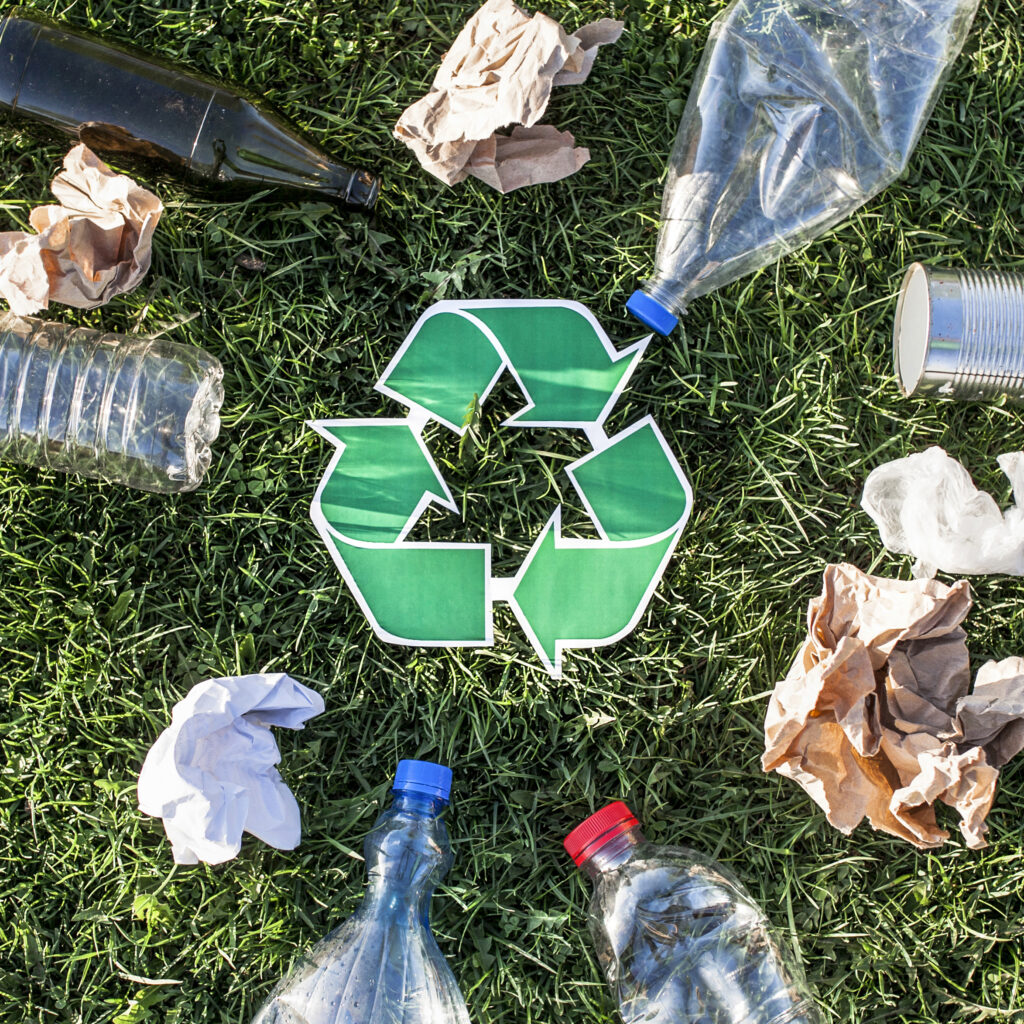
India is facing a growing plastic crisis. With rapid urbanization and increasing consumption, plastic waste is rising at an alarming rate. This challenge, however, also presents an opportunity. Innovative approaches in recycling plastic waste management are transforming how India deals with this issue. Today, new technologies are being introduced to manage plastic waste more effectively. These solutions not only reduce pollution but also offer economic and environmental benefits.
The Need for Technological Innovation
Plastic garbage is non-biodegradable; thus, it can persist in the environment for hundreds of years. This causes clogged drains, dirty rivers, and health problems. Traditional waste disposal methods are no longer efficient. As a result, updated techniques are required to address this issue. This gap can be filled through innovations in the management of recycled plastic garbage. They promote efficiency, scalability, and long-term impact. Indian students and future professionals must comprehend these solutions in order to create a sustainable future.
Sorting Technology
Sorting is the first step in managing recycled plastic waste. Previously, this was done manually, which made the process slow and prone to errors. Automated sorting machines now use infrared and artificial intelligence (AI) systems. These machines can easily identify various sorts of plastics. This innovation improves recycling accuracy and labor efficiency. It also raises the quality of recycled materials, making them eligible for reuse. Students can pursue careers in automation to contribute to the field.
Pyrolysis Technology
Pyrolysis is another innovative technology that is gaining popularity. This technology recycles plastic trash into gasoline, gas, and other useful items. It involves heating plastic in the absence of oxygen. Pyrolysis is useful for plastics that are not typically recyclable. This method is particularly effective for handling multilayer packaging. Such strategies make recycling plastic waste more inclusive. Indian inventors are already testing small-scale pyrolysis devices to benefit local populations.
Chemical Recycling
Chemical recycling converts plastic waste back into its original components. These can then be combined to create new polymers. Unlike mechanical recycling, this approach accepts mixed or contaminated plastics. It ensures superior purity and quality. For Indian researchers, this presents an opportunity to design novel materials. It also provides prospects in chemical engineering and material science. Such scientific interventions are extremely beneficial to the management of recyclable plastic garbage.
Waste-to-Energy Plants
Waste-to-energy plants are increasingly prevalent in cities. These facilities burn plastic trash at extremely high temperatures. The heat is subsequently utilized to generate power. Although controversial, this method reduces landfill use. It also provides an energy source, particularly for industrial purposes. However, stringent emission controls are required. Indian students pursuing environmental engineering can help to develop this technology. With energy recovery solutions, recycling plastic waste management takes on new dimensions.
Mobile Recycling Units
In rural and remote areas, infrastructure is a significant challenge. Mobile recycling units provide a solution. These small machines may be transferred to various sites. They carry out basic recycling activities such as shredding and melting. Local communities profit from reduced transportation expenses and improved awareness. This is a promising subject for students studying design and mechanical engineering. Mobile methods for recycling plastic garbage can reach a larger audience.
Plastic Roads
The use of plastic waste in road construction is a unique Indian innovation. Mixed plastic garbage is melted and mixed into bitumen. This improves the road’s durability and water resistance. There are over 1,00,000 kilometers of such roads in India. This procedure is low-cost and environmentally friendly. Civil engineering students can investigate this application further. It demonstrates how recycling plastic waste management may address both infrastructure and pollution concerns.
AI and Data-Driven Solutions
Smart waste bins, tracking apps, and artificial intelligence models are all helping to monitor waste generation and collection. These tools identify patterns and optimize routes. This saves both fuel and manpower. It also guarantees timely disposal. This is a rapidly expanding field for IT and computer science students. Integrating digital tools improves recycling plastic waste management. These systems promote transparency and accountability.
Bioplastics and Alternative Materials
Bioplastics, while not a recycling method, help to lessen the need for traditional plastic materials. These materials, derived from natural sources such as corn starch or algae, degrade more quickly. Bioplastics are becoming more affordable and scalable thanks to constant innovation. Indian students studying biotechnology and materials science have the potential to drive this transformation. Recycling plastic garbage must be combined with a reduction in overall plastic use.
Community-Based Models
Technology alone cannot fix the issue. Community participation is critical. Some models include informal garbage pickers in the system. They are trained to operate sorting equipment or micro recycling units. This empowers communities and generates jobs. Indian youth can use social entrepreneurship to promote such models. Only when communities participate in the recycling of plastic garbage does it become sustainable.
Education and Awareness
Finally, creativity must extend to education. Awareness campaigns, curriculum integration, and student-led initiatives are critical. Young minds must regard garbage as a resource. Schools and universities must incorporate trash management into environmental studies. This fosters a mindset that prioritizes sustainability. Recycling plastic waste begins with education. It ensures that innovations are implemented wisely and consistently.
The Role of Policy and Governance
Government backing is critical for scaling technology. Subsidies, tax breaks, and stringent rules can all encourage adoption. Public-private partnerships help to bring innovation to the ground. Indian students interested in public policy and administration should concentrate on this topic. When efficient governance is in place, the recycling of plastic trash increases momentum.
Challenges and the Way Forward
Despite these advancements, difficulties persist. High initial expenses, a lack of infrastructure, and low public awareness all impede progress. However, with consistent work, these challenges can be overcome. Indian students are essential to this transformation. They can add fresh perspectives, energy, and expertise to the field. Their contribution will help to advance the management of recycled plastic garbage.
Innovations in recycled plastic waste management technology are helping to create a cleaner, greener India. From mechanized sorting to plastic roadways, every idea counts. These technologies provide hope and practical solutions. However, genuine change will occur when individuals, particularly students, take the initiative. With education, awareness, and participation, India has the potential to become a global leader in sustainable waste management.



